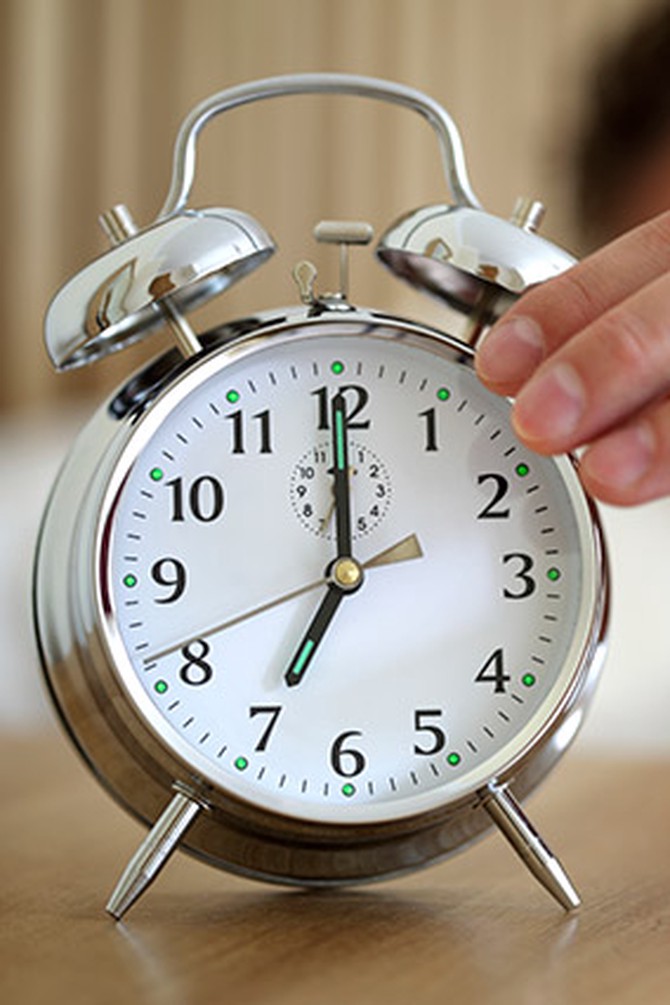Dr. Oz: 5 "Vices" That Can Be Good for You
These surprising health updates turn so-called vices into virtues.
By Dr. Mehmet Oz

Photo: Greg Kessler
In my 27 years as a doctor, one thing has remained constant: Most people won't let me out of their sight until I give them unequivocal answers to questions about their health habits—do eat this, don't do that. Of course, there are some indisputable rules (smoking is bad, sunscreen is good), but many of the health choices we make every day fall into a gray area where the advice can change, sometimes for the better, as research evolves.
Here, five recent findings put a positive spin on habits that aren't so bad after all.
Here, five recent findings put a positive spin on habits that aren't so bad after all.

Photo: Thinkstock
Habit: Skipping the Gym When You're Short on Time
Good News: You can work out less—if you move more. In one 2013 study, people who stood for a total of two hours and walked for four hours daily had greater insulin sensitivity (which reduces the risk of diabetes and heart disease) than people who completed an intense workout for one hour but were mostly sedentary for the other 23. This may be because muscle contractions from more sustained movement stimulate the production of an enzyme that helps regulate glucose.

Photo: Thinkstock
Habit: Downing Cup After Cup of Coffee
Good News: In recent years, a wealth of research has shown that java may be just what the doctor ordered. A 2013 study of more than 23,000 people found that those who drank coffee daily were shown to have a 4 percent lower risk of developing heart disease, type 2 diabetes, and cancer.

Photo: Thinkstock
Habit: Sleeping Late on Weekends
Good News: Though going to bed at the same time and waking at the same time every day is the best way to feel rested, that's easier said than done. And it turns out there's a more realistic solution to combat the consequences of sleepless nights: A study in the journal Sleep suggests that "sleep banking"—clocking more hours of shut-eye in anticipation of a sleep-deprived night—may lessen fatigue. When subjects snoozed ten hours per night the week before they could squeeze in only three hours of sleep, they experienced fewer impairments in cognitive performance and alertness than those who clocked a steady seven hours prior to sleep deprivation.

Photo: Thinkstock
Habit: Playing Video Games
Good News: If you pass the time in line at the grocery store or bank playing games on your phone, you may be doing your memory a big favor. According to a study in the journal PLOS ONE, people who played games that required them to find objects hidden in complex scenes one hour a day, five days a week for four weeks improved their performance on tests that measured spatial memory.

Photo: Thinkstock
Habit: Scarfing Down Carbs
Good News: For decades refined carbohydrates have been maligned as empty calories, but not all carbs deserve the negative rep. Resistant starch—a type that can be created when foods like pasta and potatoes are cooled after cooking—doesn't break down in your small intestine like other starches. It arrives intact in the large intestine, where it produces fatty acids that may prove useful in the prevention of colorectal cancer by protecting cells from DNA damage. And one study done on animals found that a diet high in resistant starch even helped shrink breast cancer tumors.
Next: Dr. Oz's vice-o-meter
Next: Dr. Oz's vice-o-meter
From the September 2013 issue of O, The Oprah Magazine

